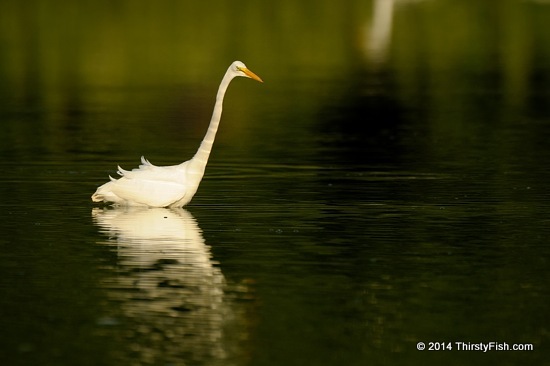Great Egret / Anthropocentrism, Biocentrism, Ecocentrism

Photographed at the John Heinz National Wildlife Refuge.
The belief that human beings are the central or most significant species on the planet hence they have a greater moral status or higher value than other animals is called anthropocentrism. The Book of Genesis teaches: "Then God said, 'Let us make mankind in our image, in our likeness, so that they may rule over the fish in the sea and the birds in the sky, over the livestock and all the wild animals, and over all the creatures that move along the ground'".
Anthropocentrism, the belief in human supremacy and dominion over other forms of life, is likely the most dangerous of all human "assumptions". Humans depend on all life, whereas other species - even ones we consider insignificant - do not need us to survive. For example, without those "annoying" insects, life on earth will be wiped out in a matter of a few years. Biocentrism is the ethical point of view that "all living things" have an inherent value, and that humans are not "superior" to other species in a moral or ethical sense. A similar thought, Ecocentrism, extends this belief to the whole natural environment that supports life - earth, water, air.
How we "see" the world, determines how we "treat" the world. If natural life is only there for us to consume, then we will consume it until our own extinction. If rather than dominate natural life, we choose to be a part of it, maybe we can exit the apocalyptic path we have put ourselves and potentially all life on.
Posted
- Mon 2014-01-06
Captured
- 2011-07-30
- Philadelphia, PA


